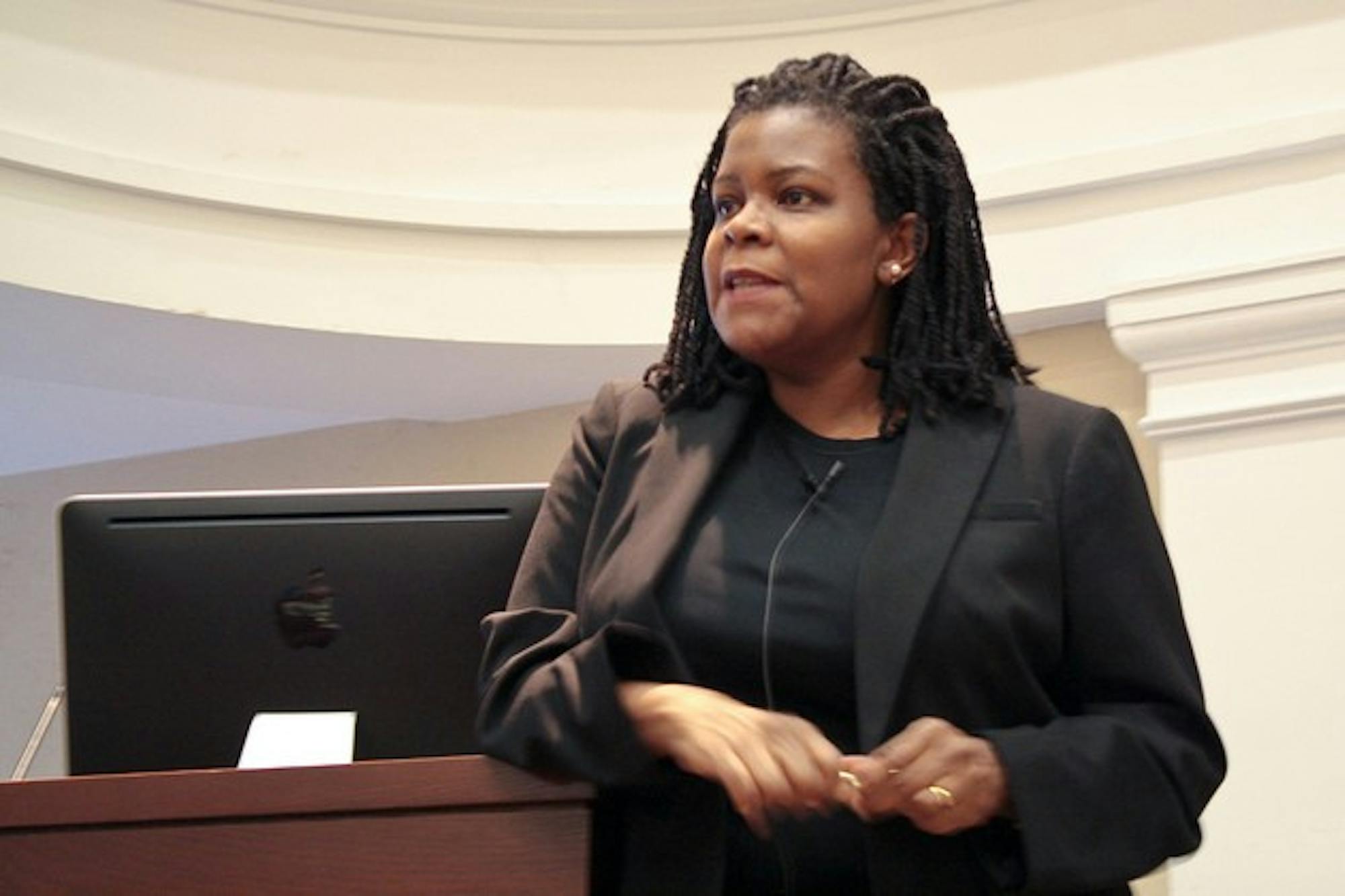Jefferson was an Enlightenment-influenced deist who believed God was a "clockmaker" who created the universe but who does not interfere with human affairs, Gordon-Reed said. He did not believe in the Trinity or the divinity of Jesus Christ, but instead regarded Jesus as a great moral philosopher, according to Gordon-Reed.
Jefferson believed everyone else eventually would agree with him, Gordon-Reed said.
The fact that Jefferson said many things that "directly contradict" the idea of being a devout Christian makes it hard to reconcile his views with the notion of the Founding Fathers as "born-again people who favored a particular type of political evangelical Christianity," Gordon-Reed said.
Jefferson's beliefs led him to create the Jefferson Bible, which removes references to Jesus's miracles, and instead focuses on the teachings of Jesus himself, Gordon-Reed said. Jefferson also helped draft the Virginia Statute of Religious Freedom, a precursor to the First Amendment. Jefferson even refused to become a godfather because the statements he had to say contradicted his view of the Trinity.
Although Jefferson believed his deist views would be widely adopted, he stood out from the increasingly fervent religious environment of the 18th century's Second Great Awakening, Gordon-Reed said. Many people began to view Jefferson with suspicion, especially after he became a "staunch defender" of the atheist-influenced French Revolution, she said. She pointed to a recent decision by the Texas Board of Education to remove Jefferson from a textbook section on Enlightenment philosophers as evidence that this opposition continues today.
"People began to see him as a dangerous radical," she said.
Not wanting to alienate devout Americans, Jefferson dismissed suggestions that he was an atheist by describing his religious views as a "sect unto himself," Gordon-Reed said.
"If he told people what he actually believed, he would suffer for it, just as he would suffer now," she said. "He was definitely cagey about these kinds of things."
In addition to his political life at the time, Gordon-Reed said she thought Jefferson was concerned about his "legacy."
Jefferson's lack of religious passion may have contributed to his reluctance to free his slaves, Gordon-Reed said. She noted that most of the slave owners of the period who freed their slaves were guided by religious reasons.
"People's faith and deeply held beliefs are what drive people for good and sometimes unfortunately for evil," Gordon-Reed said. "[Jefferson] didn't have that."
Gordon-Reed contrasted Jefferson's logical thought process with what she called the emotional religious fervor of the era.
Jefferson had two families at Monticello one with his wife and one with his slave, Sally Hemings and both were influenced by his beliefs, Gordon-Reed said. She cited letters written by Jefferson's white grandchildren that dismiss people who attend church, as well as the fact that the children Hemings had with Jefferson did not attend church, which was rare in the black community at the time.
Gordon-Reed said she plans to investigate this further in her next book about the Hemingses.
"It would be interesting if Jefferson passed down his skepticism about religion to sons who were nevertheless in a community that was by that time enthralled by Christianity," Gordon-Reed said.
Some archeological evidence suggests religious life may still have existed at Monticello in the form of African religious traditions or Christianity practiced by Jefferson's slaves, according to Gordon-Reed.
"In terms of religion, Jefferson was live and let live." Gordon-Reed said. "He was certainly not involved in proselytizing to the slaves one way or another."
In her 1997 book "Thomas Jefferson and Sally Hemings: An American Controversy," Gordon-Reed analyzed scholarly research and determined there was a sexual relationship between the former president and his slave, a theory that was later supported by DNA evidence. President Barack Obama awarded her the National Humanities Medal in February.
Gordon-Reed, who has taught at the New York School of Law and Rutgers University, recently joined the faculty of Harvard Law School, where she graduated in 1984. Beginning this summer, she will also teach in the history department at Harvard College.
The talk was this year's James & David Orr Memorial Lecture on Culture and Religion presented by the religion department.




